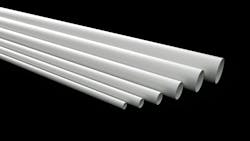EPA Tightens Grip on Toxic Chemicals, Industry Feels the Heat
The pressure is mounting for many chemical plants that use or produce toxic compounds to clean up their act. This includes chloroprene, used to make synthetic rubber, and vinyl chloride, the building block for polyvinyl chloride (PVC).
Last week, actions by several environmental groups and a chemical manufacturer indicate that both sides are taking U.S. Environmental Protection Agency proposals very seriously.
Denka Performance Elastomer threatened to shut down its neoprene plant in Louisiana if it must comply with a U.S. Environmental Protection Agency ruling targeting hazardous emissions, according to an Associated Press report on May 29.
The plant, located in a chemical corridor often referred to as “cancer alley,” uses chloroprene to manufacture neoprene, a synthetic rubber used in various items, including wetsuits, fishing waders and automotive belts.
The Japanese rubber manufacturer is among 200-plus facilities that fall under new EPA emissions standards for six hazardous organic substances, which include ethylene oxide (EtO), chloroprene, benzene, 1,3-butadiene, ethylene dichloride and vinyl chloride.
Denka claims the EPA has treated the company unfairly by imposing a 90-day deadline for fenceline monitoring of chloroprene emissions, while granting facilities handling more dangerous substances a two-year timeline, according to the Associated Press.
EPA Zeroes In on Vinyl Chloride
Vinyl chloride, in particular, has come under intense scrutiny since the February 2023 train derailment in East Palestine, Ohio, which led to a controlled burn of the substance, raising significant health and safety concerns in the area.
In addition to the new emissions ruling, in December the EPA named vinyl chloride a priority chemical under the Toxic Substances Control Act (TSCA), subjecting it to a comprehensive risk evaluation. In April, the EPA announced new fenceline monitoring rules for six chemicals including vinyl chloride and chloroprene.
A May 28 letter signed by 18 environmental groups, including Beyond Plastics, the Environmental Defense Fund and Earthjustice, called on the agency to extend requirements for safety data on vinyl chloride to processors and distributors. The letter also requested that the agency remove certain reporting exemptions for vinyl chloride. These include mixtures that contain vinyl chloride and any safety studies that these manufacturers already possess but are exempt from reporting. The request calls on the EPA to consider all of the conditions of use and their potential risks, says Eve Gartner, an attorney with Earthjustice, a group that has filed several lawsuits against the chemical industry.
“If the studies have already been done and they have them, there's not really a big burden here, they should turn them over,” Gartner says. “And the same thing with these exemptions. There's no reason to have any exemptions from this rule. If studies exist and are in the possession of these companies or they are aware of them, they should turn them over.”
In response to the letter, the Vinyl Institute, which represents manufacturers of vinyl and vinyl chloride, stated that the industry is willing and committed to providing the EPA with the information it’s seeking. The trade group disputed any claims that the industry is trying to withhold information.
“Any claims of industry suppression of data are disingenuous and do no not reflect the efforts the VI and our members have made to collaborate with EPA during this review, according to a statement released by Gil Connolly, press secretary, Vinyl Institute. “We believe the risk evaluation process will further demonstrate that the production and use of vinyl chloride is safely managed.”
Some environmental groups, like Beyond Plastics, have called for a ban on vinyl chloride, but a more likely scenario is that the EPA will require more safeguards, says Jo Anna Pollock, an environmental attorney with Simmons Hanly Conroy.
When asked whether vinyl chloride manufacturers could become the subject of massive lawsuits, much like manufacturers of per- and polyfluoroalkyl substances, Pollock said that’s also unlikely.
“While VC is a recalcitrant chemical, it is not a “forever chemical,” so we don’t expect to see the same range of lawsuits,” she says. “The range of lawsuits will continue to arise from faulty transport of VC and from byproducts associated with VC and PVC-related products.”
About the Author
Jonathan Katz
Executive Editor
Jonathan Katz, executive editor, brings nearly two decades of experience as a B2B journalist to Chemical Processing magazine. He has expertise on a wide range of industrial topics. Jon previously served as the managing editor for IndustryWeek magazine and, most recently, as a freelance writer specializing in content marketing for the manufacturing sector.
His knowledge areas include industrial safety, environmental compliance/sustainability, lean manufacturing/continuous improvement, Industry 4.0/automation and many other topics of interest to the Chemical Processing audience.
When he’s not working, Jon enjoys fishing, hiking and music, including a small but growing vinyl collection.
Jon resides in the Cleveland, Ohio, area.

